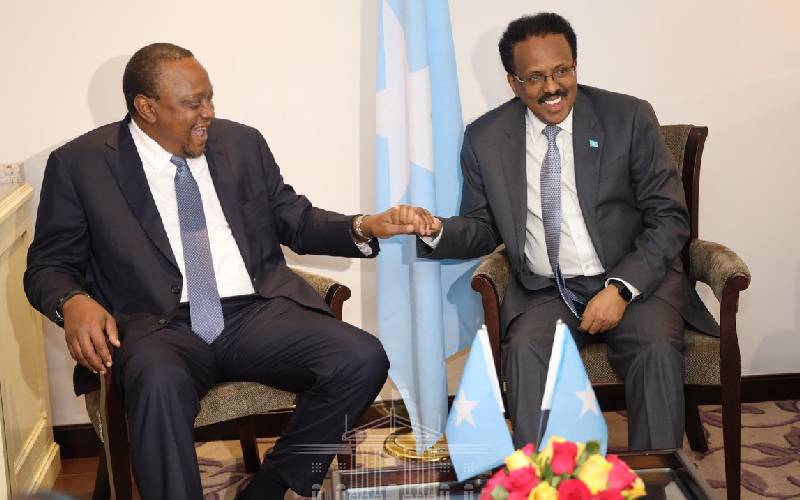×
The Standard e-Paper
Smart Minds Choose Us

President Uhuru Kenyatta when he held talks with his Somalia counterpart Mohamed Farmaajo. [PSCU,Standard]
Kenya has maintained it will not cede even an inch of its territory.